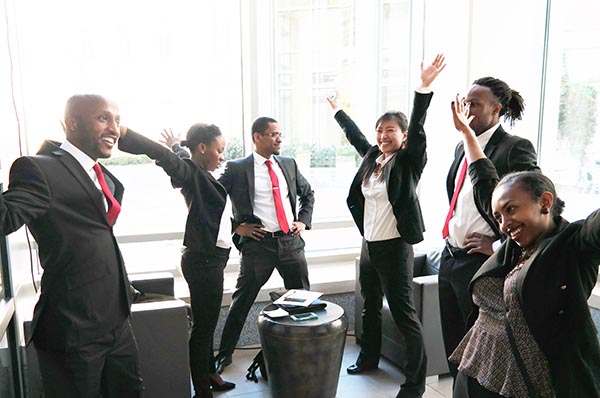Creating a healthier population means tackling hard-to-solve, complex issues. At Minnesota, students are at the center of some of the world’s most pressing problems through their involvement in case competitions.
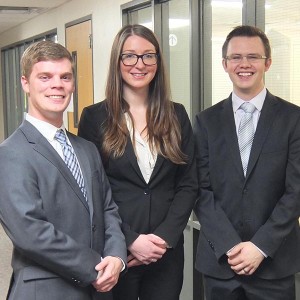
At case competitions, participants from universities compete to solve problems for organizations in a set amount of time. In public health, case competitions allow students to think strategically and participate on interprofessional teams when tackling a health-related problem.
The School of Public Health’s participation in case competitions originated in the Master of Healthcare Administration (MHA) program, where case-based learning is embedded in the curriculum and course credit is encouraged.
“Case competitions give students the chance to use knowledge and skills developed from multiple courses in the curriculum and apply them to a specific problem or issue,” says MHA Program Director and Wegmiller Professor Jean Abraham. “The case competitions demonstrate what our students are able to accomplish in terms of addressing some of the most pressing issues that exist in health care delivery today.”
Minnesota sends students to competitions at University of Alabama-Birmingham (UAB), The Ohio State University (OSU), the Medtronic Case Competition, and the National Association of Health Services Executives (NAHSE). MPH and MHA students participate in interdisciplinary competitions, such as the Emory Global Health Case Competition and the CLARION Case Competition, a local and national competition sponsored by the University of Minnesota focused on the improvement of quality and patient safety in health care.
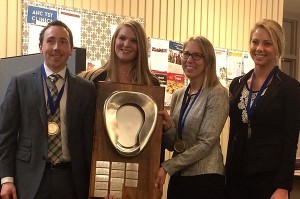
“I saw the experience as a natural extension of my education,” says Elliott Wortham, MHA ’15, who participated in the UAB Case Competition and now works as a project manager at the Cleveland Clinic. “Now that I’m working, I use the problem-solving I learned at Minnesota and the team-based thinking I learned through the case competition all of the time.”
For organizations partaking in case competitions, student presentations offer a fresh, new way of thinking. “A lot of times, competition panelists will bring the ideas that come out in these competitions back to their organization,” says SPH associate professor Rich Priore, who served as the faculty adviser for the University of Minnesota’s UAB case competition team.
“Because of the condensed timeframe in case competitions, the students have the opportunity to accelerate their problem solving skills by learning to quickly research an issue, scope the problem, and create recommendations and an effective presentation strategy,” says Senior Lecturer and OSU Faculty Adviser Justine Mishek, MHA, ‘02.
Students get feedback on their presentations from alumni and faculty, but there are often strict rules that the mentorship can’t go too far. ”We don’t tell students the ‘right way’ to do things. There is no one right way,” says Geoff Kaufmann, longtime faculty adviser for the MHA program and vice president of patient services at American Red Cross. “We ask questions that may make them see things differently, but there’s an understanding that it’s their problem to solve.”
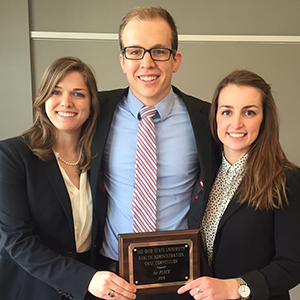
The preparation and mentorship for Minnesota students pays off and 2016 was a year of plenty for U of M students.
At the UAB competition, Minnesota MHA students placed first for their population health strategy for Ochsner Health System in New Orleans, La. At OSU, MHA students won first place for their strategies to improve financial services of obstetric units. At CLARION, the team, including two MHA students, placed first in the local competition their recommendations for patient-centered care in American Indian populations. At Emory Global Health Case Competition, the Minnesota team, consisting of three public health students, won participant’s choice for their recommendations regarding obstetric fistula in India.
For participants, case competitions help break down the silos. “CLARION is a way for students to bring unique perspectives from their professions, but to also learn that all voices need to be at the table,” says Associate Professor Sandra Potthoff, who was one of the founding faculty advisers of CLARION. “Our students talk about how this competition helped them think from a systems point of view and think about different stakeholders.”
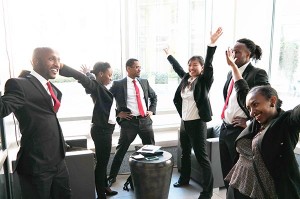
In 2014, the University of Minnesota’s Center for Global Health and Social Responsibility started a Global Health Case Competition in which students from around the U of M work to solve global issues. The winning team heads to Emory’s Global Health Case Competition. Public health students often partake, alongside students from law, nursing, economics, and many other disciplines. “Working with the other students taught me so much about how other disciplines approach a problem,” says MPH student Patrick Williams, who was part of the 2016 team. “All of the different perspectives bring something special to the table and the end result is so much stronger.”
For Wortham, the real-world application has been vital. “When you’re working, you don’t always get to choose your projects or your team, but you’re expected to solve the problem in front of you. That’s what case competitions are all about.”
